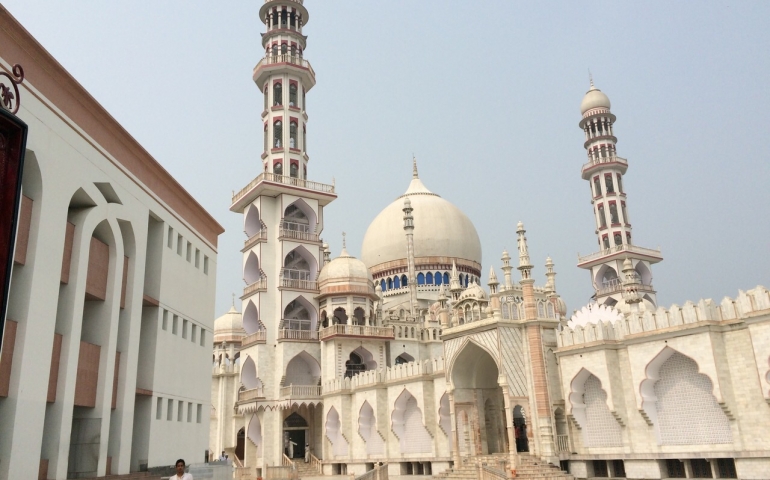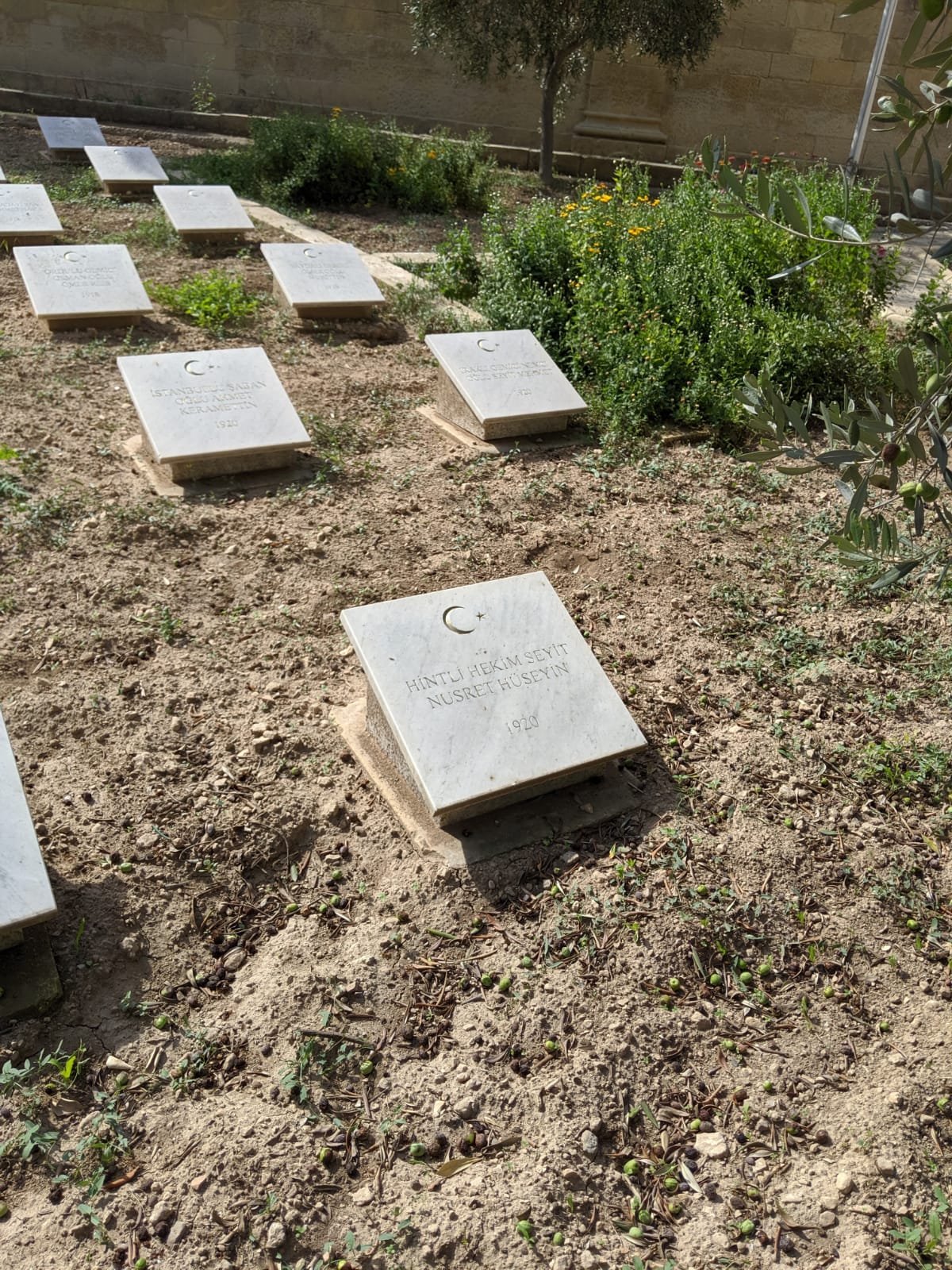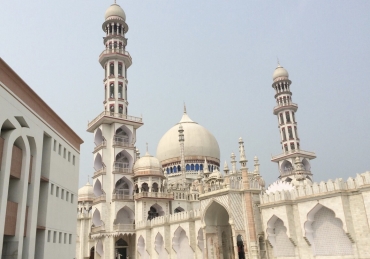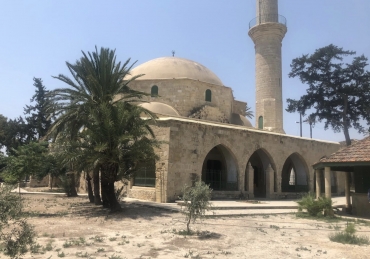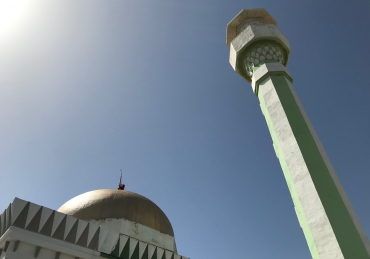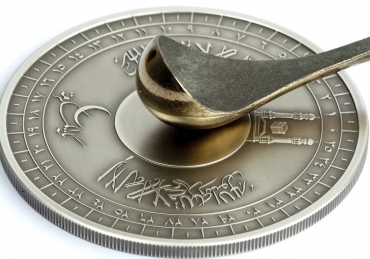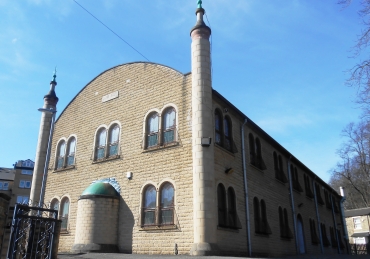Sayyid Mawlānā Arshad Madanī’s UK visit (March 2024)
بسم الله الرحمن الرحیم
A few weeks ago, our respected Sayyid Ḥaḍrat Mawlānā Arshad Madanī Ṣāḥib (b. 1360/1941) phoned me explaining that he is visiting the UK at the invitation of my teacher, Shaykh ʿAbdurraḥīm Limbādā Ṣāḥib (b. 1385/1965) for the completion of Ṣaḥīḥ al-Bukhārī at Raheemi Academy, Bolton. I extended an invitation to Ḥaḍrat Mawlānā to visit Blackburn if time permits. He explained that this maybe difficult as he is only visiting the UK for 2-3 days and he also has to visit Walsall, something he always does when he visits the UK. A few days later, he kindly phoned me outlining the itinerary and that he will eat dinner with us and spend the night at my house.
Ḥaḍrat Mawlāna, thus arrived at Manchester Airport on Saturday 2 March 2024 at midday, accompanied by his nephew Mawlānā Akhlad Ṣāḥib, who resides in the blessed city of Madīnah. He travelled to Bolton and ate lunch at Shaykh ʿAbdurraḥīm’s residence. I met him after ʿAṣr Ṣalāh at Raheemi Academy (Hulton Lane Centre for Education & Mosque) and informed him of the snow falling outside. We discussed a number of issues including the regulation of education establishments in the UK via Ofsted and how books like Bahishtī Zeywar are coming under scrutiny. Ḥaḍrat Mawlānā confirmed that this scrutiny is also occurring in India.
After Maghrib Ṣalāh, the ʿUlamāʾ programme commenced at Raheemi Academy with nearly 200 scholars in attendance from Lancashire and Yorkshire including: my respected teacher Mufti Muḥammad Ṭāhir, Mawlānā Margūb Lājpūrī, Mawlānā Sulaymān Bodiyāt, Mawlānā Khalīl Aḥmad Kāzī and others. Ḥaḍrat Mawlānā’s speech focused on the two parts of the kalimah and how the world is united against the second part and not necessarily the first part. He elaborated and explained that there are many non-Muslims in the world who accept the oneness of Allah Almighty, however they do not accept the prophethood of our beloved Prophet ﷺ. It is therefore incumbent upon us to appreciate the challenges arising as a result and inculcate the Prophetic Sunnah in all aspects of our life.
After ʿIshāʾ Ṣalāh, I discussed several charity related matters with Ḥaḍrat Mawlānā and this was followed by food for all the ʿUlamāʾ kindly arranged by Shaykh ʿAbdurraḥīm Ṣāḥib. Raheemi Academy was established a few years ago and has made phenomenal progress in a short period of time. May Allah Almighty take it from strength to strength.
The following day on Sunday 3 March, Raheemi Academy’s completion of Ṣaḥīḥ al-Bukhārī took place at Ashrafia Masjid, Bolton. Ḥaḍrat Mawlānā delivered the final lesson and emphasised on remaining attached to the ways of the pious predecessors and elders. I could not attend this programme. He then travelled to Walsall with Mawlānā Gulām Ṣāḥib, who has served as Imam in Masjid al-Farouq Walsall for 47-48 years and enjoys a very close relationship with him. Ḥaḍrat Mawlānā always visits Walsall, because Mawlānā Ḥasan Tāi Ṣāḥib (d. 1439/2017), a student of Shaykh al-Islām Mawlānā Ḥusayn Aḥmad Madanī (d. 1377/1957) resided in Walsall and was Ḥaḍrat Mawlānā’s host. Therein is a learning for us that a favour should not be forgotten. I recall that his elder brother, Sayyid Mawlānā Asʿad Madanī (d. 1427/2006) enjoyed a very close relationship with my maternal grandfather, Ḥājī Adam Patel (d. 1429/2008) and would always reside at his home in Hope Street, Dewsbury since the 1970s until his demise, despite the fact that there were no toilet facilities on the ground floor and no lift in the house. Towards the end of his life, Mawlānā Asʿad Ṣāḥib would slowly ascend the stairs and it would take him considerable time to do this. This notwithstanding the fact that many people in Dewsbury and Batley wished that Mawlānā Asʿad Ṣāḥib would reside at their more spacious homes with more accessible facilities.
The next morning on Monday 4 March, Ḥaḍrat Mawlānā departed from Walsall after breakfast and arrived into Darul Uloom Bury at approximately 9am, where he delivered a short talk to the students. Mawlānā Junayd Desai Ṣāḥib and other teachers welcomed the convoy and refreshments were also served in the staff room. From here, we travelled to Manchester to the residence of Qari Zubair Ṣāḥib who has hosted many senior scholars of the Indian subcontinent at his house. In fact, he is the one who invited Ḥaḍrat Mawlānā Qārī Ṣiddīq Bāndawī Ṣāḥib (d. 1418/1997) to the UK in September 1996. I remember this as a young 7-year-old child, sitting with my father in Qārī Zubair’s car in Batley, alongside Ḥaḍrat Mawlānā Ṣiddīq Ṣāḥib and Mufti Aḥmad Khānpūrī Ṣāḥib among other scholars.
Mawlānā Arshad Ṣāḥib then rested at Qārī Zubair Ṣāḥib’s house, and this was followed by lunch and Ẓuhr Ṣalāh. The prolific authors Mawlānā Iqbāl Rangūnī Ṣāḥib and Mawlānā Thamīruddīn Ṣāḥib also came, as did other scholars of Manchester.
After lunch, Ḥaḍrat Mawlānā travelled to Bradford to commence Ṣaḥīḥ al-Bukhārī at the Madrasah run by my dear friend, Mawlānā ʿAbdurraḥīm Mīr, who has a very close connection with the Madani family and also serves as Trustee of Darul Uloom Deoband’s charity in the UK.
Thereafter, Ḥaḍrat Mawlānā and the convoy arrived at my respected father’s residence in Blackburn at approximately 7.30pm. My respected father and Ḥaḍrat Mawlānā have known each other since several decades. Many scholars were in attendance including Mufti ʿAbduṣṣamad, Shaykh ʿAbdurraḥīm Limbada, Mawlānā Ḥifẓurraḥman Sirājuddīn and others. Mufti Muḥammad Ṭāhir also joined later. My respected father suffered a fracture on his foot a few days prior to Ḥaḍrat Mawlānā’s arrival in the UK making it difficult for him to walk. He requested me to bring a copy of Shaykh Muḥammad Yūnus Jownpūrī’s (d. 1438/2017) Ṣaḥīḥ al-Bukhārī, from which Shaykh taught, which was printed from the scanned version of the original. He showed it to Ḥaḍrat Mawlānā and thanked him for facilitating the scanning of the original in the library of Darul Uloom Deoband. As mentioned in one of my travelogues Return to Bangladesh and India (Nov 2022), Darul Uloom Deoband has a very large and organised library with good systems, with a team dedicated to scanning and preserving manuscripts and old books.
Dinner was then served at my father’s residence. Ḥaḍrat Mawlānā eats on the table due to his elderly age. He is fond of Dār Chāwal (lentils and rice). This reminds me that once on a visit to Deoband, Ḥaḍrat Mawlānā specifically requested his Gujarati daughter in law, the daughter of Mawlānā Gulām Muḥammad Wastānwī, to cook Curry Kitchrī for me. The hospitality of the Madanī family is second to none.
After dinner, we brought Ḥaḍrat Mawlānā to my new house, where we performed ʿIshāʾ Ṣalāh. At around 9pm, Mawlānā rested for the evening. Mawlānā Akhlad Ṣāḥib, Shaykh ʿAbdurraḥīm Ṣāḥib, Mawlānā Gulām Ṣāḥib and his son Mawlānā Ashraf Ṣāḥib also resided at our house, which was nūr upon nūr (light upon light). At approximately 4am, Ḥadrat Mawlānā woke up, performed ablution and engaged in Tahajjud Ṣalāh. This was on the lower floor. Upstairs, the other guests also woke up and performed Tahajjud Ṣalāh. I could hear the emotional supplication and cries of Mawlānā Gulām Ṣāḥib who was in his room alone, pleading to Allah Almighty. May Allah Almighty grant us all the tawfīq to wake up at this time and shed some tears for ourselves and the Ummah.
This is one of the things I have noticed about Ḥadrat Mawlānā Arshad Ṣāḥib, he sleeps early and wakes up for Tahajjud Ṣalāh, irrespective of whether he is in India or abroad. In India, he prefers to eat dinner after Maghrib Ṣalāh and then rest soon after ʿIshāʾ Ṣalāh. When I visited him twice in Delhi after ʿIshāʾ Ṣalāh, I experienced the same.
As Fajr Ṣalāh time commenced, we performed Fajr Ṣalāh together. As the proprietor of the house, Shaykh ʿAbdurraḥīm Ṣāḥib requested me to lead the Ṣalāh. This was followed by breakfast and discussion on various issues. Ḥaḍrat Mawlānā confirmed that he has not visited Masjid al-Aqsa, and that as far as he was aware, his father Shaykh al-Islām Mawlānā Ḥusayn Aḥmad Madanī also did not visit it. On Shaykh al-Islām and other luminaries of the Indian sub-continent such as Shaykh al-Hind, he mentioned two dominant qualities that distinguished them, “following the Sunnah and firmness in ideology”; their conviction was such that they would not compromise on their principles or sell their souls even if offered financial incentives. It is worth mentioning that one eighth of Shaykh al-Islām’s life was spent in jail.
We discussed our visit to Malta (details of which have been recently published in the book 12 Countries in the Company of Mufti Muhammad Taqi Usmani) and I showed Ḥaḍrat Mawlānā a picture of the grave of Ḥakīm Nuṣrat Ḥusayn (d. 1336/1918) written in modern Turkish script, which clearly indicates that it was upgraded from the original gravestone which was written in Arabic, as cited in Shaykh al-Islām’s autobiography Naqsh-e-Ḥayāt.
Ḥaḍrat Mawlānā then commented that a family member of Ḥakīm Nuṣrat Ḥusayn is currently serving in a very senior post within the Indian administration. We also discussed the photo of Shaykh al-Hind that was circulating a few years ago online. I mentioned to Ḥaḍrat Mawlānā that the source of this picture of Shaykh Muḥammad ʿAbdurraḥmān al-Ṣabāḥī’s Arabic book Khamsa Sinīn fī Magāwir al-Asr which was published from Egypt in 1922. He was also incarcerated in Malta. I obtained a PDF of this book from a university in Toronto. I showed Ḥaḍrat Mawlānā the picture therein with the caption:
الشيخ حسين محمود، العالم الهندي الكبير، رئيس كلية عليكره الذي رفض أن يفتي ضد الأتراك
Ḥaḍrat Mawlānā commented that it could be him, although it is difficult to verify because he is not aware of anyone alive who saw Shaykh al-Hind.
After breakfast, I shared with Ḥaḍrat Mawlānā some of my unpublished writings including Muḥammad Ṣallallāhu ʿalayhi wa Sallam Nabī al-Raḥmah featuring 101 ḥadīths and al-Ṣilāh fī Qawl al-Tirmidhī wa fī al-Ḥadīth Qiṣṣah. Given Ḥaḍrat Mawlānā’s association with Sunan al-Tirmidhī and some ongoing work on it, of which one volume has already been published, he specifically requested a copy of this unpublished treatise to be sent to him. I also shared with him a recently written treatise on supporting Sayyids, Ghāyat al-Saʿādāt bi Iʿānat al-Sādāt, and requested him to write a foreword. Ḥaḍrat Mawlānā travels light and his onward journey was to Saudi Arabia, so I agreed to send these to his son via email.
At one point, Ḥaḍrat Mawlānā mentioned something interesting about horse meat. During one of his visits to the blessed city of Madīnah, he went to meet Shaykh al-Ḥadīth Mawlānā Muḥammad Zakariyyā (d. 1402/1982) who had migrated there during the latter parts of his life. Shaykh al-Ḥadīth Ṣāḥib offered him horse meat to eat. He refused and said, “I will not eat it.” I have heard from my teachers and also read that Shaykh al-Ḥadīth Ṣāḥib had consulted Mufti Maḥmūd Ḥasan Gangohī (d. 1417/1996) in this regard who had advised that it is permissible to eat horse meat because it is no longer used in Jihād. I have also seen our respected Mufti Muḥammad Taqi Ṣāḥib (b. 1362/1943) eat horse meat whilst travelling with him in Uzbekistan. Horse meat is commonly consumed there. The Uzbeks are generally strict Ḥanafīs, but this appears to be an exception.
Before we departed from our home, Shaykh ʿAbdurraḥīm kindly gifted £30 for my children, Muḥammad, Aḥmad and Fāṭimah. I reminded him that when we were young studying in Darul Uloom Bury, he would give us £1 to purchase chocolates and sweets from the Tuck Shop. This meant a lot to us. Some things cannot be forgotten. I also recall that when I started my first Urdu/Arabic typing work on Sharḥ Miat ʿĀmil as an ʿArbī Dawm student in the year 2000, at the instruction of my teacher Ḥāfiẓ Aḥmad Ṣāḥib, my father was a bit apprehensive that it may be detracting me from my studies and other books. Shaykh ʿAbdurraḥīm suggested to my father that I should continue and it would be beneficial. Indeed, it was beneficial not only to understand the book and Arabic grammar, but it laid the foundation for typing Urdu and Arabic, at the time on the InPage software. As a result, I still use the phonetic keyboard to type Arabic and Urdu including when using Microsoft Word. In the later penultimate and final years of study, Shaykh ʿAbdurraḥīm also tasked me with typing the Maʿmūlāt advices of our respected Shaykh al-Ḥadīth Mawlānā Muḥammad Zakariyyā (d. 1402/1982) which are available on this link, along with the Arabic notes of Shaykh Muḥammad Yūnus Jownpūrī on the Muqaddimah of Ṣaḥīḥ Muslim which were subsequently published in volume 3 of al-Yawāqīt al-Gāliyah.
Returning to Ḥaḍrat Mawlānā, we departed from our home at 8.15am and arrived at Darul Uloom Blackburn where Ḥaḍrat Mawlānā delivered a lecture on the life of Shaykh al-Islām Mawlānā Ḥusayn Aḥmad Madanī, as per our request. This lecture focused on the various aspects of Shaykh al-Islām’s life including his piety, zuhd, spirituality, alongside his struggles and efforts for the Ummah. Ḥaḍrat Mawlānā quoted Shaykh al-Hind Mawlānā Maḥmūd Ḥasan Deobandī (d. 1339/1920) who said that whoever thinks that the role of scholars is confined to the four walls of a Darul Uloom has left a dent on our faith. It was a very emotional lecture leaving many in tears. Shaykh al-Islām was a unique person; he is from among those luminaries that when their names are mentioned, the mouth experiences a unique sweetness (ḥalāwat) which is difficult to describe. This lecture is being transcribed and will be published online soon Inshā Allah.
We then sat in the Darul Uloom office for a short while and thereafter arrived at the residence of my respected teacher, Mawlānā Ḥifẓurraḥmān Ṣāḥib, where an early lunch was served. Mawlānā’s son, Mawlānā Ṣuhayb Sirājuddīn, who has authored a concise tafsīr of the Quran Akhṣar al-Tafāsīr among other books was also present, as were the children of our respected Ḥaḍrat Mawlānā Yusuf Motala Ṣāḥib Raḥimahullāh (d. 1441/2019): Mawlānā Muḥammad and Mawlānā Sulaymān. The Imam of the local Masjid, respected Mufti Ṣālīḥ Ṣāḥib was also present.
After lunch, Ḥaḍrat Mawlānā visited Markazul Uloom on Park Lee Road for a short supplication and thereafter arrived at Manchester Airport just before midday. Ḥaḍrat Mawlānā checked in, performed Ṣalāh and then made a short farewell supplication and also gave some advice.
Spending time with such scholars is always refreshing and nourishing. Ḥaḍrat Mawlānā is constantly under the media spotlight in India. May Allah Almighty protect him and keep his shadow over us for long. Allah Almighty also reward Shaykh ʿAbdurraḥīm for inviting Ḥaḍrat Mawlānā and making all the arrangements, and also reward Mawlānā Gulām Ṣāḥib and his family for assisting and serving Ḥaḍrat Mawlānā with diligence and devotion, and Mufti Wahhaj from the United States who was also present and prompted me to write this article. Āmīn.
Yusuf Shabbir
14 Shawwāl 1445 / 23 April 2024

